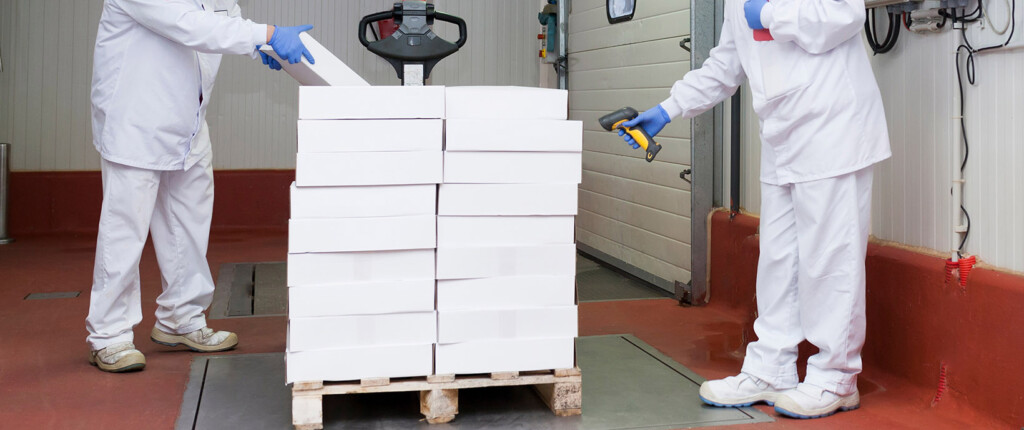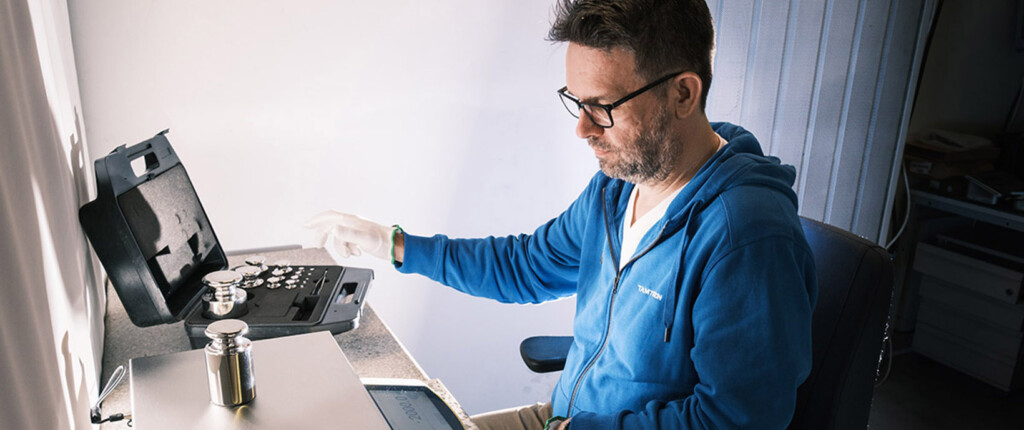Since the food industry must be able to feed Finns under both normal and exceptional conditions, as well as after exceptional circumstances, there is no room for inaccuracy or errors in the food production chain. The specific needs of the process must therefore be carefully taken into account in the design and implementation of the weighing and dosing systems.
Tamtron supplies machinery and equipment for all aspects of the food industry processes, from the reception of raw materials to their transfer, dosing, and weighing, as well as the packaging of the final products. Tamtron’s customers include factories for the meat, dairy, bakery, beverage, and confectionery industries. Jari Haraholma, who has decades of experience in weighing and dosing systems for the food industry, explains more in this article.
Receiving of raw material
The most typical device for measuring the amount of raw material received is a truck scale. For example, a totalizing hopper scale is usually used to receive grain. In general, for the receiving of bulk material, the factory may use, for example, a belt scale or a weighing silo, into which the supplier blows the material. All of these methods are also suitable for commercial weighing. As the factory buys the raw material based on weighing the reliability of the weighing equipment is essential.
Transfer of raw material to production lines
From the silo or container of the raw material received, the material is transferred to the production lines or from the truck scale first to the container and then to the production lines. The lines usually have smaller day tanks or containers called bulk tanks with weighing. Depending on the raw material, there may also be “dolly wagons” to move the goods through the floor scales into the process. Belt scales can also be used for weighing enabling the raw material to be included at the beginning of the dosing process.

Dosing of raw materials into the process
The material is fed into the process from dosing tanks located on top of the weighing sensors or alternatively, the material is brought in by trolley, for example on a weighbridge. Dosing is usually carried out in a batch process – very often according to a recipe. The process requires several raw materials, of which the desired quantities are dosed according to the recipe for the manufacture of the product. A continuous process is also possible but is not very common in the food industry.
Sampling
Samples are often taken from the material received and at least from the material going into production. Bulk material may be sampled using various sampling devices and then transferred to the laboratory for analysis. For this purpose, Tamtron supplies laboratory scales.
Packaging of the final product
Once the masses have been mixed and the process completed, the packaging of the final product follows. The equipment most commonly supplied by Tamtron for packaging is big bag lines. Packaging can also be done with canning lines for liquids or box packaging lines for, for example, sweets. They are usually filling machines on conveyors. The box or canister of the material itself is first brought on a conveyor line to the packing point, where it is filled, and the packaged product then continues along the conveyor line. Robotic lines can also be used for this purpose. Almost all of these lines are subject to commercial weighing.
Tamtron provides solutions for check weighing of the final product
The packaging of the product already meets the verification requirements, i.e. it is suitable for commercial weighing, but there are production methods where the final product is packaged before the verification weighing. If the packaging is not certified, a check weighing must be carried out before the final product can be accepted for delivery.
The check weigher checks whether the weight of the packaged jar or box is within the permitted limits. If not, the device will indicate this, and the incorrectly weighted package will be removed from the line. The machine can also check the number of items in the box and report incorrect filling if, for example, a bottle is missing from a beverage basket. In addition, the device is able to report broken bottles.
There are also production methods in which the weight of each product is transferred and recorded in the upper system without any limit. In this case, each package must be sold according to the weight recorded at weighing. In these situations, too, commercial weighing is in question.
Delivery of bulk material to the customer
In the case of bulk material, the most common device used to weigh goods being delivered to the customer is truck scale. A totalizing hopper scale can be used when weighing grain. It can also be a loading station equiped with silo weighing solutions. From the silos, the goods are loaded directly into the vehicles.
This activity is also concidered commercial weighing, i.e. the scales have to have an EU type approval certificate, comply with the Machinery Directive and be CE marked.
Modernisation service with expertise
Tamtron can also implement modernization to any existing plants. There can be for example an old big bag scale in which the scale electronics are broken, new equivalent electronics are not available, or its components do not have current EU test certificates.
Of course, the scale can be used as long as it works and can in that case also be certified. If the scale electronics are broken, the situation becomes more complicated though. In that case, adding a new weighing terminal does not guarantee that the scale will be approved. The new weighing terminal does have an EU-type approval certificate, but if the components of the big bag scale are old, they do not have EU test certificates. Therefore, both the weighing terminal and the components with the EU test certificates must be purchased. These allow the scale to be approved as an automatic filling device.
Another example could be an old packaging machine that may never have been approved in the first place or is not functioning properly. It may be that the machine fills the package volumetrically but not gravimetrically. In this case, the options are to replace the entire packaging machine or to purchase a check weigher to extend the line.
Specific requirements in the food sector
Particular attention should be paid to the clothing, level of protection, occupational safety, and hygiene of all persons carrying out maintenance and installation work in food establishments. In general, the entire field staff of Tamtron has for example hygiene certification and the company makes sure the annual maintenance of food industry solutions is always performed by designated individuals who have been tested for salmonella. The people who go to the production plants to perform any work are only in good health.
When designing the structure of the devices, it is essential to consider their suitability for food handling. For example, they must not have holes or cavities that are difficult or impossible to clean. In addition, level surfaces must be inclined to prevent the accumulation of liquid on them.
The materials used in the construction of the equipment must be durable, easy to clean, stainless, and resistant to moisture and acids. In specific processes, steel surfaces must also be electro-polished. Conveyor belts and chain conveyors used in these processes must also be approved for food production in terms of both materials and structures.
Comprehensive service for food industry needs
In addition to equipment, Tamtron also offers services such as installation, supervision of installation, commissioning, initial verification, maintenance and periodic servicing, as well as calibration if required. Tamtron scales can of course also be connected to the mScales digital weighing service. Various contract models are available for customers, and Tamtron’s experts will be happy to explain them in greater detail.
Tamtron’s extensive experience with different food processes and problem situations guarantees optimal solutions for all applications. Tamton recognises and considers accuracy, repeatability, reliability and cleanability of materials and equipment to ensure hygiene as paramount factors in the design and implementation of food industry systems.




